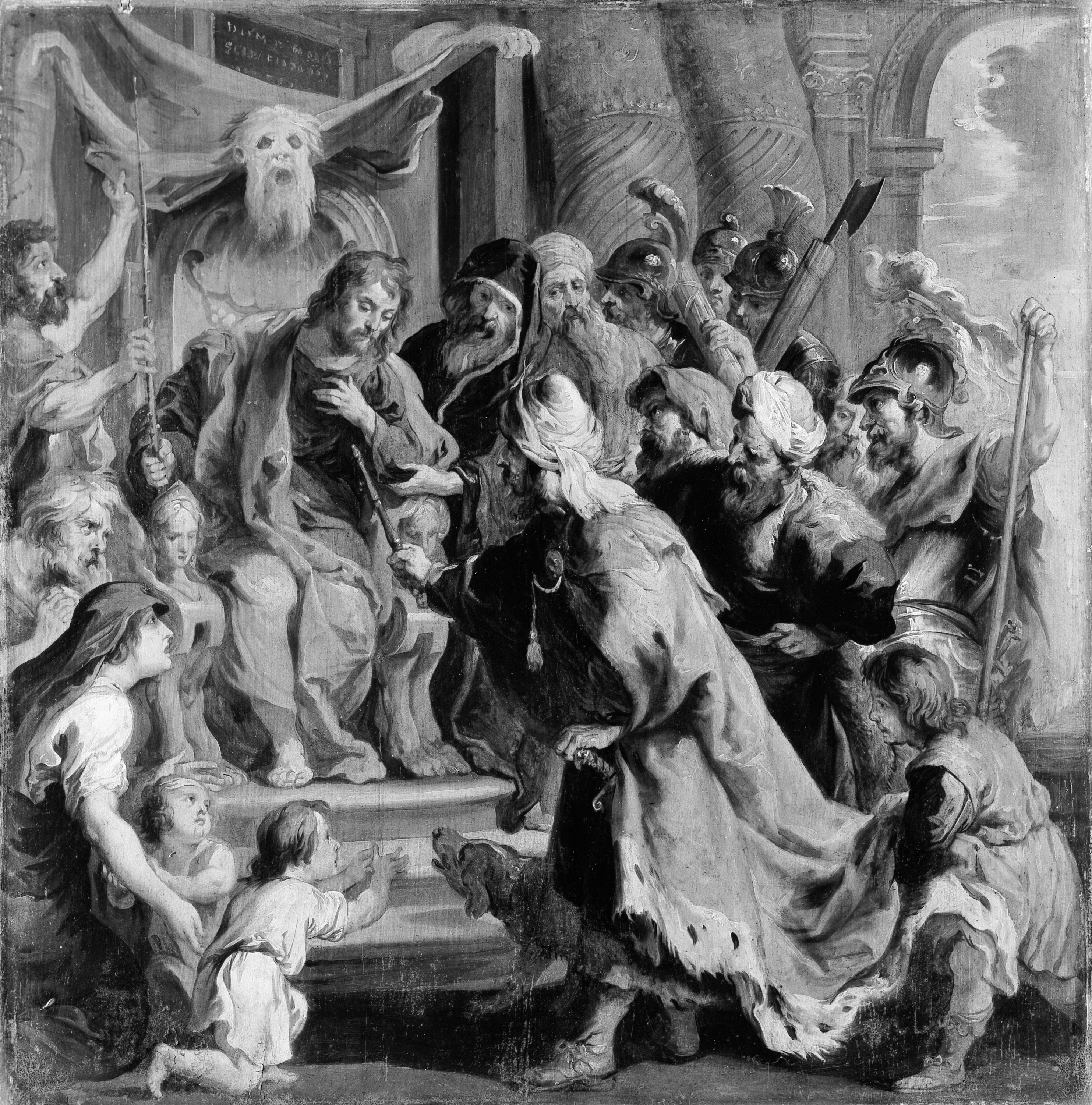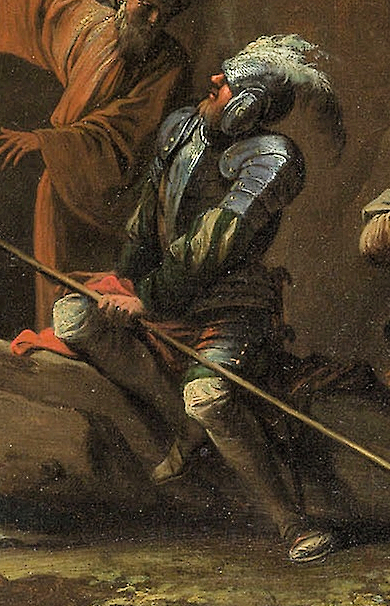|
Syloson
Syloson (, ''gen''.: Συλοσῶνος) governed Samos as a vassal ruler on behalf of the Achaemenid Persian Empire. He was appointed by king Darius I and was the brother of Polycrates of Samos. When Polycrates became tyrant of the island he exiled Syloson. Syloson went to Egypt, where he stayed until a "flame-coloured mantle" he was selling brought him in contact with Darius I of Persia. At the time Darius I of Persia was a spearman in Cambyses II of Persia's army. Syloson saw how much Darius liked the mantle and gave it to him for free. When Darius rose to power Syloson went to visit him in Susa. Darius offered him gold and silver for his kindness in the past with the mantle but Syloson refused and wanted military assistance in retaking Samos. "To me, O king, give neither gold nor silver, but recover and give me my fatherland Samos, which now that my brother Polycrates has been slain by Oroites is possessed by our slave." Darius agreed and sent an expedition led by Otanes Ot ... [...More Info...] [...Related Items...] OR: [Wikipedia] [Google] [Baidu] |
Polycrates
Polycrates (; ), son of Aeaces (father of Polycrates), Aeaces, was the tyrant of Samos from the 540s BC to 522 BC. He had a reputation as both a fierce warrior and an enlightened tyrant. Sources The main source for Polycrates' life and activities is the historian Herodotus, who devotes a large section of book 3 of his ''Histories (Herodotus), Histories'' to the rise and fall of Polycrates (3.39-60, 3.120-126). His account was written in the third quarter of the 5th century BC, nearly a century after Polycrates' death, was based mostly on oral traditions and incorporates many folk-tale elements. Furthermore, Herodotus creatively shaped his account of Polycrates in order to make general moral points and to comment on the imperialism of the Athenian empire in his own day. Some poetry from Polycrates' time comments on him in passing and there is a smattering of references to Polycrates in other literary sources ranging in date from the 4th century BC to the Roman Empire, Roman Impe ... [...More Info...] [...Related Items...] OR: [Wikipedia] [Google] [Baidu] |
Aeaces (son Of Syloson)
Aeaces, son of Syloson () was the ruler of Samos in the late sixth and early fifth centuries BC. He belonged to an established dynasty of Samian rulers - his father Syloson had been installed as ruler of Samos by the Persian king Darius I around 520 BC and his uncle Polycrates had reigned before that. Aeaces was deprived of his tyranny by Aristagoras, when the Ionians revolted against Persian Persian may refer to: * People and things from Iran, historically called ''Persia'' in the English language ** Persians, the majority ethnic group in Iran, not to be conflated with the Iranic peoples ** Persian language, an Iranian language of the ... rule in 500 BC. He then fled to the Persians, and persuaded the Samians to abandon the other Ionians in the sea-fight between the Persians and Ionians. After this battle, in which the latter were defeated, he was restored to the tyranny of Samos by the Persians in 494 BC. Notes References * {{DEFAULTSORT:Aeaces Ancient Samians ... [...More Info...] [...Related Items...] OR: [Wikipedia] [Google] [Baidu] |
Otanes
Otanes (Old Persian: ''Utāna'', ) is a name given to several figures that appear in the ''Histories'' of Herodotus. One or more of these figures may be the same person. In the ''Histories'' Otanes, son of Pharnaspes He was regarded as a Persian nobleman, being among the few with highest ranks in the kingdom, who was also a political philosopher. ''Histories'' 3.68.1, 3.68.3, 3.69.6 has an Otanes as the son of the Achaemenid Pharnaspes, as the father of Phaidyme (or Phaedyma), who in turn is a wife of Cambyses II, and later a wife of the Gaumata alias Smerdis. Herodotus gives this Otanes a role in the overthrow of the false Smerdis, and ''this'' Otanes is therefore generally assumed to be identical to a known co-conspirator of Darius I, mentioned in Darius's own list of his helpers at overthrowing Gaumata (DB IV 83). The Behistun inscription has this Otanes as the son of Thukhra, in which case he could not have been the son of Pharnaspes, and so cannot have been a brother ... [...More Info...] [...Related Items...] OR: [Wikipedia] [Google] [Baidu] |
Archaic Tyrants , a geological eon
{{disambig ...
Archaic may refer to: * Archaic Period (several meanings), archaeological term used to refer to a very early period differing by location *Archaic humans, people before ''homo sapiens'' * ''Archaic'' (comics), a comic-book series created by writer James Abrams and artist Brett Marting *Archaism, an archaic word or style of speech or writing. See also * * * Archaea, several meanings * Archean The Archean ( , also spelled Archaean or Archæan), in older sources sometimes called the Archaeozoic, is the second of the four geologic eons of Earth's history of Earth, history, preceded by the Hadean Eon and followed by the Proterozoic and t ... [...More Info...] [...Related Items...] OR: [Wikipedia] [Google] [Baidu] |
Ancient Samians
Ancient history is a time period from the beginning of writing and recorded human history through late antiquity. The span of recorded history is roughly 5,000 years, beginning with the development of Sumerian cuneiform script. Ancient history covers all continents inhabited by humans in the period 3000 BCAD 500, ending with the expansion of Islam in late antiquity. The three-age system periodises ancient history into the Stone Age, the Bronze Age, and the Iron Age, with recorded history generally considered to begin with the Bronze Age. The start and end of the three ages vary between world regions. In many regions the Bronze Age is generally considered to begin a few centuries prior to 3000 BC, while the end of the Iron Age varies from the early first millennium BC in some regions to the late first millennium AD in others. During the time period of ancient history, the world population was exponentially increasing due to the Neolithic Revolution, which was in full pr ... [...More Info...] [...Related Items...] OR: [Wikipedia] [Google] [Baidu] |
6th-century BC Greek People
The 6th century is the period from 501 through 600 in line with the Julian calendar. In the West, the century marks the end of Classical Antiquity and the beginning of the Middle Ages. The collapse of the Western Roman Empire late in the previous century left Europe fractured into many small Germanic kingdoms competing fiercely for land and wealth. From the upheaval the Franks rose to prominence and carved out a sizeable domain covering much of modern France and Germany. Meanwhile, the surviving Eastern Roman Empire began to expand under Emperor Justinian, who recaptured North Africa from the Vandals and attempted fully to recover Italy as well, in the hope of reinstating Roman control over the lands once ruled by the Western Roman Empire. Owing in part to the collapse of the Roman Empire along with its literature and civilization, the sixth century is generally considered to be the least known about in the Dark Ages. In its second golden age, the Sassanid Empire reached the ... [...More Info...] [...Related Items...] OR: [Wikipedia] [Google] [Baidu] |
Charilaos
Charilaos (, in Latin letters also spelled ''Kharilaos'' and ''Harilaos'', stress on the second syllable) is a Greek language male given name. Bearers of the name include: * Charilaos Trikoupis (1832–1896) * Charilaos Vasilakos (1875–1964) * Charilaos Giannakas (19th–20th centuries) * Charilaos Tsantis (1909–1979) * Charilaos Mitrelias (died 1988) * Charilaos Florakis (1914–2005) * Charilaos Stavrakis (born 1956) * Charilaos Pappas (born 1983) * Charilaos Bikas (born 1992) See also * Charis (name) Charis () is a given name derived from a Ancient Greek, Greek word meaning "grace, kindness, and life." It is a unisex name, overwhelmingly used for men in Greece and overwhelmingly used for women elsewhere in the world. In Greek mythology, Cha ... {{Given name Greek masculine given names Masculine given names ... [...More Info...] [...Related Items...] OR: [Wikipedia] [Google] [Baidu] |
ISLANDS Off IONIA, Samos
This is a list of the lists of islands in the world grouped by country, by continent, by body of water A body of water or waterbody is any significant accumulation of water on the surface of Earth or another planet. The term most often refers to oceans, seas, and lakes, but it includes smaller pools of water such as ponds, wetlands, or more rare ..., and by other classifications. For rank-order lists, see the other lists of islands below. Lists of islands by country or location Africa Antarctica Asia Europe North America Oceania South America Lists of islands by continent Lists of islands by body of water By ocean: By other bodies of water: List of ancient islands Other lists of islands External links Island Superlatives {{South America topic, List of islands of * ... [...More Info...] [...Related Items...] OR: [Wikipedia] [Google] [Baidu] |
Samos
Samos (, also ; , ) is a Greek island in the eastern Aegean Sea, south of Chios, north of Patmos and the Dodecanese archipelago, and off the coast of western Turkey, from which it is separated by the Mycale Strait. It is also a separate regional unit of the North Aegean region. In ancient times, Samos was an especially rich and powerful city-state, particularly known for its vineyards and wine production. It is home to Pythagoreion and the Heraion of Samos, a UNESCO World Heritage Site that includes the Eupalinian aqueduct, a marvel of ancient engineering. Samos is the birthplace of the Greek philosopher and mathematician Pythagoras, after whom the Pythagorean theorem is named, the philosophers Melissus of Samos and Epicurus, and the astronomer Aristarchus of Samos, the first known individual to propose that the Earth revolves around the Sun. Samian wine was well known in antiquity and is still produced on the island. The island was governed by the semi-autonomous P ... [...More Info...] [...Related Items...] OR: [Wikipedia] [Google] [Baidu] |
Oroetus
Oroetus, or Oroetes (Old Iranian: ''Arvita'', Ancient Greek: ''Ὀροίτης''), was a Persian Satrap of Lydia (c. 530-520 BC), during the reigns of Cyrus the Great, Cambyses and Darius the Great, succeeding Harpagus, and being followed by Bagaeus. He is described by Herodotus in the third book of his ''Histories'', where he achieved notoriety for the death of Polycrates, tyrant of Samos: Oroetus became the first satrap recorded as demonstrating insubordination towards the central power of Persia. When Cambyses (ruled 530-522 BC), who succeeded his father Cyrus, died, the Persian Empire was in chaos prior to Darius the Great (522-486 BC) finally securing control. Oroetus defied Darius' orders to assist him, whereupon the Achaemenid nobleman Bagaeus was sent by Darius to arrange his murder. Oroetus in Art File:The crucifixion of Polycrates the tyrant after his capture by the Persians MET DP837539.jpg, The crucifixion of Polycrates the tyrant after his capture by the Persi ... [...More Info...] [...Related Items...] OR: [Wikipedia] [Google] [Baidu] |






